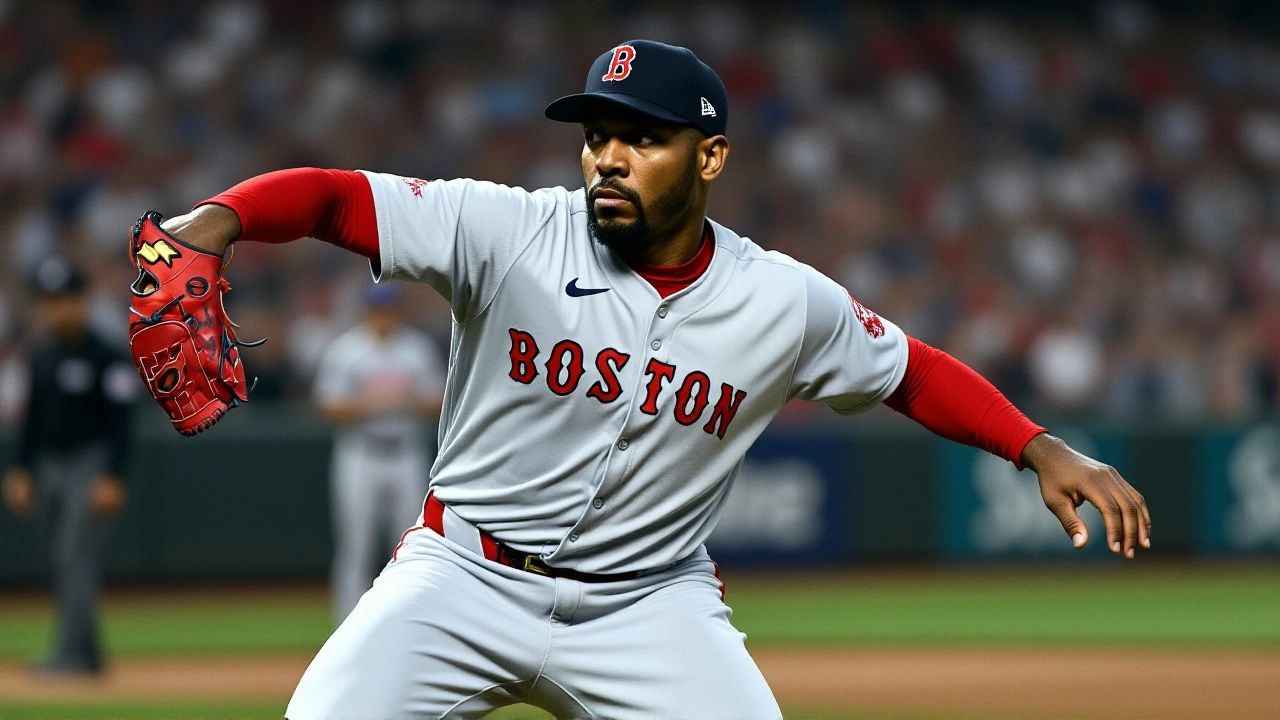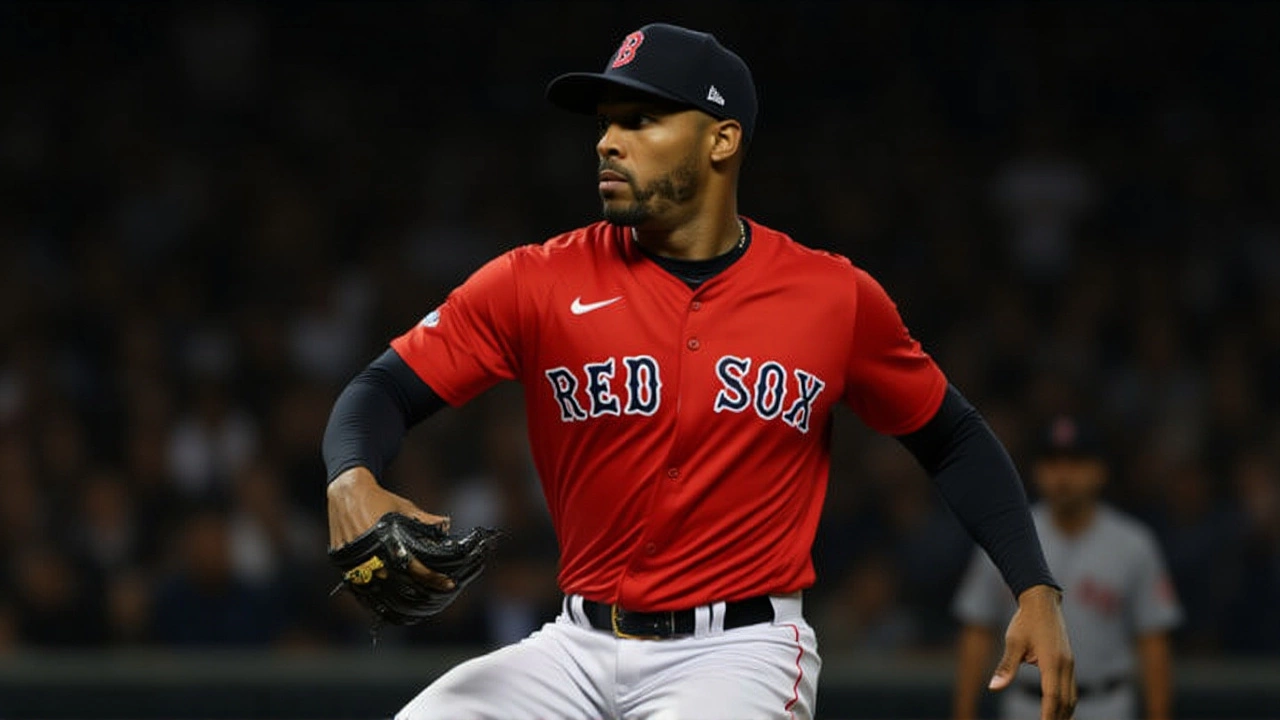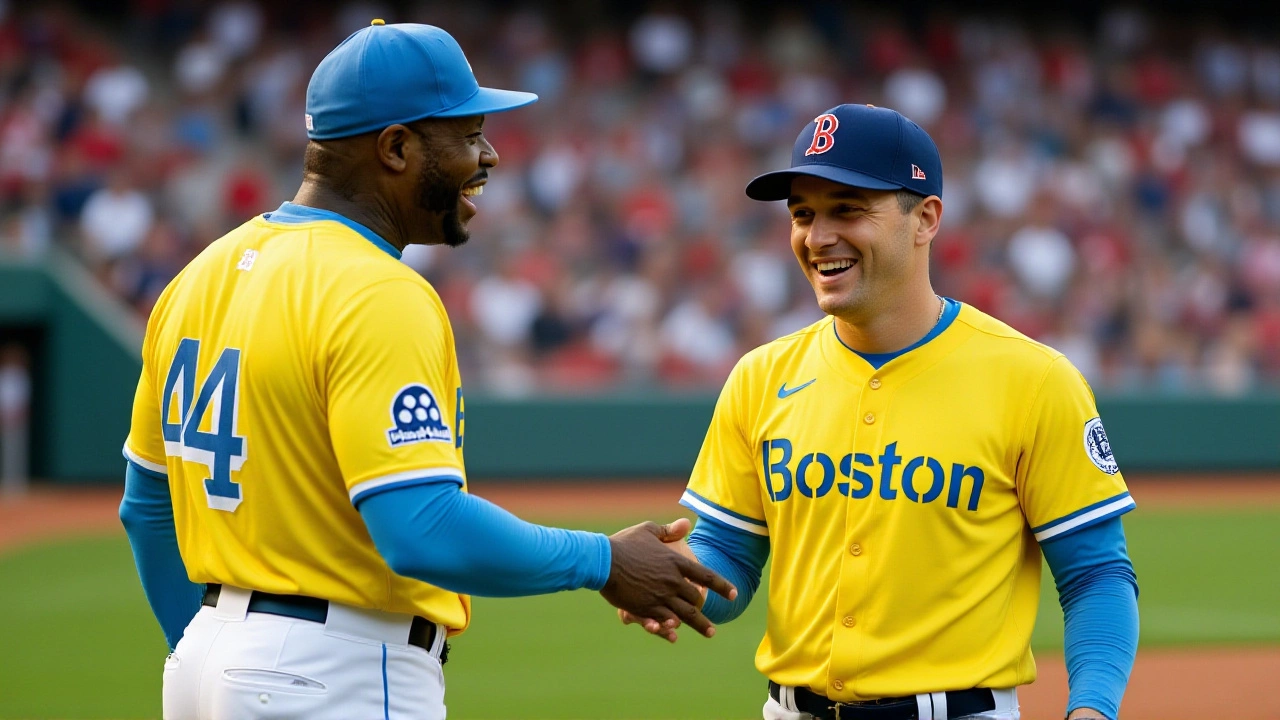When Aroldis Chapman, a 37‑year‑old left‑handed closer for the Boston Red Sox signed a contract extension on , the move sent a ripple through Fenway and the broader baseball world. The deal guarantees Chapman $13.3 million for the 2026 season, with a vesting option that could lock him in for 2027 if he logs 40 innings and passes a physical. It also flies in the face of the long‑standing narrative that the Red Sox clubhouse is a mess, because Chapman publicly praised the team’s chemistry and staff support.
Background: Chapman's Journey to Boston
Chapman’s road to Fenway was anything but straight. After a dominant stint with the New York Yankees that culminated in a 2022 World Series ring, he bounced between the Kansas City Royals, Texas Rangers, and Pittsburgh Pirates before Boston offered a bye‑week in 2024. The Cuban‑born fireballer, once dubbed the "Cuban Missile," earned a reputation for short‑term contracts and high‑velocity thrills, but rarely long‑term stability.
His 2025 arrival coincided with a rebuilding phase for the Red Sox, who were looking to shore up a shaky bullpen. What happened next felt like a script rewrite: Chapman turned in career‑best control, slashing his walk rate to 7.1% and posting a sub‑1.00 ERA (officially 1.04 according to MLB’s stats). The resurgence sparked chatter about a possible Cy Young vote and put him squarely in the conversation for the Mariano Rivera AL Reliever of the Year award.
Details of the Extension Deal
Red Sox chief baseball officer Craig Breslow unveiled the numbers in a press conference that felt more like a celebration than a negotiation.
- 2026 salary: $12 million
- Signing bonus: $1 million
- Buyout if 2027 option isn’t exercised: $300,000
- 2027 mutual option: $13 million, guaranteed if Chapman pitches at least 40 innings in 2026 and passes a post‑season physical
The structure mirrors modern MLB contracts that blend guaranteed money with performance triggers, giving Boston cost certainty while rewarding Chapman for durability.
Statistical Surge and Award Contention
Numbers tell the story louder than any press release. Over 54 innings pitched, Chapman struck out 77 batters and issued only 14 walks, translating to a 2.33 BB/9 and a jaw‑dropping 38.7% strikeout rate. His Fielding Independent Pitching (FIP) hovered around 1.78, and his Wins Above Replacement (WAR) sat at 2.2—a rare feat for any reliever, let alone a player in his late‑30s.
He also chalked up a 46‑batters‑in‑a‑row streak, a feat that put him in elite company. The consistency has analysts projecting a top‑five finish in the AL Reliever voting, and whispers of a Cy Young vote are no longer a joke.

Inside the Clubhouse: Chemistry Claims
When asked why he committed to Boston, Chapman spoke through interpreter Carlos Villoria Benítez, emphasizing “the camaraderie in the clubhouse and the support staff.” He added, “First and foremost, I feel like my teammates, the chemistry that we have here is unique. They made the decision easy for me to stay here.”
In a follow‑up interview with MLB.com’s Ian Browne, Chapman expanded: “We’re very together on and off the field. Also the coaching staff, the medical staff and the trainers made the decision easier for me.”
Breslow, smiling, said the comments nudged Boston to start talks early. “When a player is vocal about his commitment and the fit makes sense, it’s worth pursuing,” he explained. “Talks wrapped up quickly once his interest was clear.”
The narrative of a fractured Red Sox locker room has lingered since the 2020‑2022 seasons, fueled by a revolving door of managers and front‑office shuffles. Chapman’s endorsement offers a counter‑point, suggesting that the culture has finally found a groove.
What the Extension Means for Boston’s Playoff Hopes
Boston sits on the cusp of a postseason berth, and having a reliable ninth‑inning arm is priceless. The Red Sox’s competition—particularly the New York Yankees—loom large, and a seasoned closer could be the X‑factor in a tight series.
Beyond the on‑field impact, the contract signals that Boston is willing to invest in veteran talent that still performs at an elite level. That confidence may affect free‑agent decisions in the offseason, as players see a club that respects and rewards longevity.
Looking Ahead: 2026 and Beyond
Assuming Chapman sticks to his health regimen—something Breslow praised as “off the charts”—the 2026 season could see him crossing the 40‑inning threshold and activating the 2027 option. At 38, he would be one of the oldest relievers to secure a multi‑year deal, joining a short list that includes elite veterans who’ve defied age curves.
If the option kicks in, Boston locks in a 100‑mph closer through the 2027 campaign, buying valuable bullpen stability while the club navigates the next wave of roster decisions. For Chapman, the deal offers a rare unicorn in modern baseball: guaranteed money, a supportive environment, and a chance to chase a historic award night after night.

Frequently Asked Questions
How does the extension affect the Red Sox’s bullpen strategy?
Securing Chapman for at least another year gives Boston a clear, high‑velocity option for the ninth inning, allowing the club to allocate bullpen slots to younger arms or situational relievers without fearing a late‑game collapse. It also provides financial predictability, freeing up payroll to address other needs.
What performance benchmarks must Chapman meet to trigger the 2027 option?
He needs to log at least 40 innings in the 2026 season and pass a post‑season physical exam. Hitting those marks would automatically convert the mutual option into a guaranteed $13 million salary for 2027.
Why did Chapman’s comments contradict the usual Red Sox clubhouse narrative?
For years, media reports have painted Boston’s locker room as divided, especially after a series of managerial changes. Chapman, however, highlighted strong teammate bonds, effective coaching, and attentive medical staff, suggesting a cultural shift that many had not yet recognized.
Could Chapman’s age be a concern for Boston moving forward?
While 37 is old for a power pitcher, Chapman’s recent durability, low walk rate, and consistent velocity have alleviated many worries. Breslow emphasized his preparation routine as a key factor that separates him from peers whose performance declines after 35.
What does the deal mean for the Red Sox’s chances against the Yankees in the playoffs?
A reliable closer like Chapman could be decisive in a tight series against a familiar foe. If Boston forces extra innings, his ability to shut down the opposition at the end of games gives the team a strategic edge that many rivals lack.
